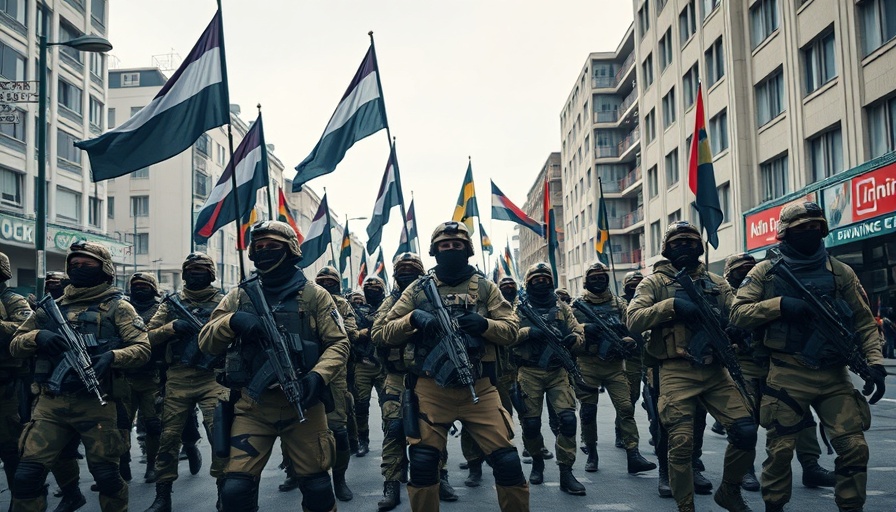
Deadlock in Negotiations: The Heart of the Matter
The ongoing struggle over Hamas's disarmament is creating significant challenges not only for hostage negotiations but also for broader peace efforts in the region. As Egyptian mediators strive to broker a deal, Hamas remains firm in its stance to retain its weapons, complicating any potential resolution. This situation has prompted an Israeli official to state starkly that should negotiations fail, military operations aimed at clearing Gaza could become necessary. This statement underscores the growing urgency in the conflict.
Humanitarian Concerns: The Impact on Hostages
The plight of hostages caught in this conflict cannot be overstated. With 59 individuals still held by Hamas, negotiations are crucial not just for peace, but for their immediate safety. The hostage conditions have been described as "unacceptable" by U.S. negotiators, emphasizing the dire need for a resolution. As the clock ticks, international pressure mounts on Hamas to consider disarmament as part of any deal, which they have so far resisted.
International Stake: U.S. Involvement and Expectations
In a bid for resolution, U.S. officials, including Donald Trump’s envoy, Steve Witkoff, are actively engaging in talks with both Hamas and resuming discussions in Qatar. Witkoff stresses that Hamas disarming must be a prerequisite for any long-term agreement, illustrating the hard line negotiators are prepared to take. Without a commitment to demilitarization, the pathway to resolving this cyclical violence looks increasingly bleak.
The Global Perspective: Public Sentiment and Religious Implications
For globally aware Christians and humanitarian advocates, the developments in Gaza resonate deeply. Many view the ongoing violence not just through a political lens but also with a sense of moral urgency. The unfortunate hostage situations align with the broader themes of vulnerability, mercy, and the need for dialogue among different faiths. The challenge is not only geopolitical but also deeply rooted in the perspectives of faith-driven communities focused on justice and peace.
Moving Forward: The Road to Peace
As discussions continue, the pressing question remains: how can both sides reach an accord that provides for humanity while ensuring security? The success of the Egyptian mediation efforts will depend on both sides' willingness to compromise. It is essential that stakeholders advocate for a peaceful resolution that respects human dignity, while also recognizing the security concerns inherent in the region.
The complexity of this situation can feel overwhelming; however, for those committed to social justice and human rights advocacy, understanding these dynamics is crucial. By engaging with this issue, we can better advocate for policies that promote peace and compassion in the region.
 Add Row
Add Row  Add
Add 








Write A Comment